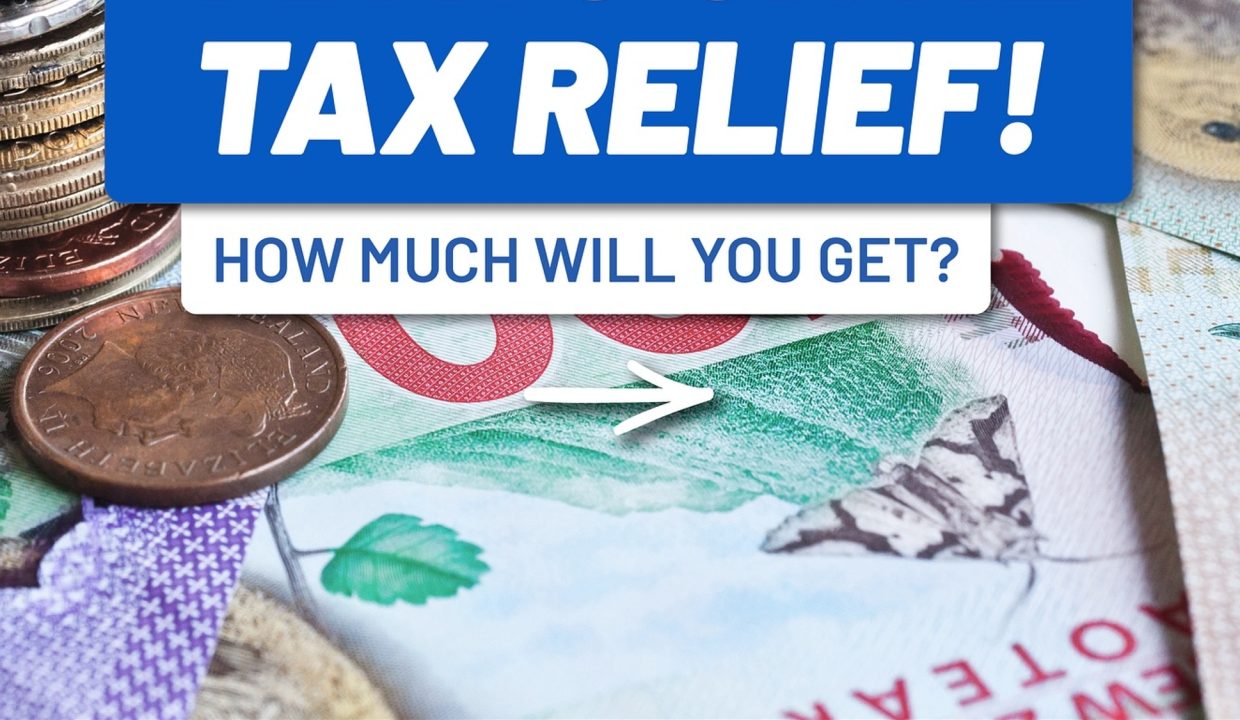
세금 감면, 저소득 가정에 실질적 도움 미미할 듯
Tax Relief Expected to Provide Limited Benefit to Low-Income Families
Concerns are growing that the upcoming tax relief measures set to take effect on July 31 may not offer significant assistance to low-income households.
The new tax policy is anticipated to reduce the income tax burden for most citizens. For instance, a single-person household earning $75,000 annually could save approximately $36.50 every two weeks. Couples without children, each earning $100,000, might see a bi-weekly saving of about $80, while a minimum-wage worker clocking 40 hours a week could save around $25 every two weeks.
However, Jarrod Kerr, Chief Economist at Kiwibank, has expressed skepticism about the relief’s impact. “While some households may benefit from the tax cuts, it is unlikely to stimulate significant consumer spending,” Kerr stated. He emphasized that many families are still grappling with economic stress, pointing out that rents have risen by 5% over the past year, mortgage interest rates have tripled, and local taxes and insurance premiums have surged. “The tax relief alone will not address these pressing issues,” Kerr added.
Susan St John, Associate Professor at the University of Auckland, noted that the bottom 20% of income earners will only receive 5.4% of the overall tax relief, while the top 40% of households will benefit from 64% of the relief. She highlighted that around 130,000 households will see no real benefit from the relief, and about 8,000 households may even face a loss.
St John also remarked that the ‘Working for Families’ tax credit adjustment, which will increase weekly benefits by $25, will not be sufficient to assist those who have lost their jobs due to the economic downturn.
Caroline Young, CEO of Retail NZ, also tempered expectations for a boost in consumer spending due to the tax cuts. “People without mortgage debt might have more disposable income to spend, but those with mortgages or facing financial difficulties will only feel more confident about spending once job security is restored and mortgage rates are lowered,” Young said.

세금 감면, 저소득 가정에 실질적 도움 미미할 듯
오는 7월 31일부터 시행되는 세금 감면 조치가 저소득 가정에 실질적인 도움을 주지 않을 것이라는 우려가 커지고 있다.
이번 조치에 따라 대부분의 국민의 소득세 부담이 경감될 예정이다. 예를 들어, 연봉 75,000달러를 받는 1인 가구는 2주마다 약 36달러 50센트를 절약할 수 있다. 자녀가 없는 부부의 경우, 각각 연봉 100,000달러를 벌면 2주마다 약 80달러를 절감할 수 있으며, 최저임금으로 주 40시간 일하는 근로자는 2주마다 25달러를 절약할 수 있다.
그러나 키위뱅크의 수석 경제학자 재로드 커는 “세금 감면이 일부 가정에 도움이 될 수는 있지만, 소비를 자극할 정도의 효과는 기대하기 어렵다”며 “현재 많은 가정이 겪고 있는 경제적 스트레스가 해결되지는 않을 것”이라고 지적했다. 그는 “임대료가 작년보다 5% 상승했으며, 자가 주택 소유자들은 이자율이 세 배로 증가했다. 또한 지방세와 보험료도 대폭 인상됐다”고 설명하며, 세금 감면이 이러한 문제들을 해결하는 데에는 미흡할 것이라고 덧붙였다.
오클랜드 대학교의 부교수 수잔 세인트 존은 “최저 소득층의 20%는 전체 세금 감면의 5.4%만을 수혜할 것”이라며 “상위 40%의 가구가 전체 세금 감면의 64%를 차지할 것”이라고 전했다. 그녀는 “약 130,000 가구가 실질적인 혜택을 받지 못하며, 8,000 가구는 오히려 손해를 볼 것”이라고 설명했다.
또한, 세인트 존 교수는 ‘워킹 포 패밀리스’ 근로 세금 크레딧 조정으로 주당 25달러의 증가가 있겠지만, 경기 침체로 인해 직장을 잃은 사람들에게는 실질적인 도움이 되지 않을 것이라고 덧붙였다.
리테일 NZ의 최고 경영자 캐롤린 영은 세금 감면에 따른 소비 증가를 기대하지 않는다고 밝혔다. 그녀는 “주택담보대출이 없는 사람들은 더 많은 가처분 소득을 통해 소비를 증가시킬 가능성이 있지만, 주택담보대출이 있거나 가정의 경제적 상황이 어려운 사람들은 직장 안전과 주택담보대출 금리 인하 후에야 소비에 대한 자신감을 가질 것”이라고 말했다.
